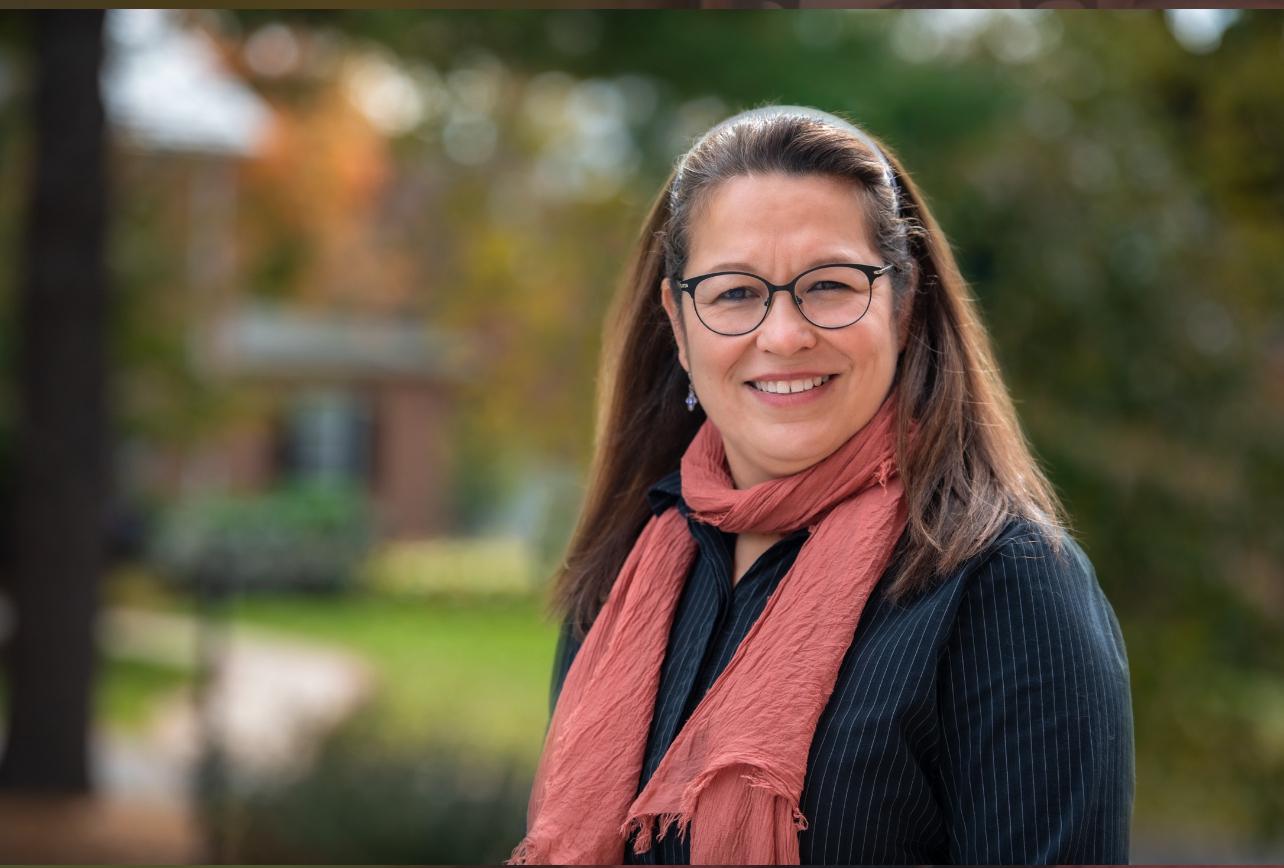Graduate Faculty Focus | Marisel Torres-Crespo, Ph.D.

"One of the most important skills my graduate students should learn is that working with AI generative tools encourages creativity and innovation in the classroom. AI allows you to explore and generate new ideas as well as create exciting content."
Marisel Torres-Crespo, Ph.D.
Program
- Curriculum and Instruction (M.S.)
Department
- Education
Marisel Torres-Crespo, Ph.D., is an associate professor and coordinator of online instruction at Hood College. Her research interests include art, gender roles, STEM in early childhood, multiculturalism, and technology and coding in the early years. This year, Torres-Crespo has been integrating generative artificial intelligence (AI) into her curriculum and has taught the benefits of AI in the classroom. We spoke with Torres-Crespo about her experiences working with AI and how it has benefited her graduate students.
Could you briefly describe your career and educational background?
My educational journey began with a bachelor’s in elementary school education and a master’s in early childhood education. I advanced my academic pursuits with a Ph.D. in curriculum and instruction, specializing in early childhood education. With more than 20 years of experience in higher education, I’ve always been driven by a passion for staying up to date on technological advancements and how to integrate them into my classes through best practices.
In 2013, while serving as director of the Onica Prall Child Development Lab School at Hood College, I developed a summer camp to allow preschoolers to participate in STEM experiences in a developmentally appropriate way. Eventually, I integrated arts into STEM under the name STEAM. Later, I explored the constructive use of iPads to enhance learning experiences for preschoolers.
As time progressed, my focus moved toward computational thinking in early childhood education, especially in preparing pre-service teachers to integrate these concepts into their future classrooms.
What led you to teach at Hood College?
I left my home in Puerto Rico for professional reasons and fell in love with Hood College.
What got you interested in AI and its applications in education?
Lately, as part of the Maryland Center of Computing Education and in partnership with Hood College, I have become involved in AI professional development. I have seen so many benefits that AI has to offer, especially in the education field.
I’ve read that you will be presenting an AI workshop to Hood faculty. Could you go into more detail about it?
Actually, I already presented the workshop! It was called “From Doubt to Discovery: Decoding AI in Higher Ed,” and it was held at the Spring Forum on January 22. The workshop’s purpose was for faculty to receive an overview of artificial intelligence tools, explore the positive applications of AI for educators, understand how AI can improve teaching and learning experiences, and learn how to minimize academic dishonesty with AI tools.
What are your plans for integrating AI topics into your EDUC 502 class?
The last class was the first session on AI. It asked a variety of questions, such as:
- What is AI?
- How is AI in our daily lives?
- How could teachers incorporate this into their classes?
- How could AI facilitate a few time-consuming tasks and help them without being considered “cheating?”
In the following sessions, I will start adding ChatGPT, Gemini, Copilot and other AI generative tools into the classes/assessments. I want them to see that you can evaluate a student without the typical multiple choice, true or false, or other formats that enable academic dishonesty. You could instead recreate an assignment using one of those tools to accurately measure learning.
Overall, what do you hope to teach students by exploring AI and relevant topics in your classes?
I want my students, who are predominantly teachers, to understand the relevance of our times. By integrating AI into education, they can provide students with valuable skills in high demand. Also, these tools offer opportunities to improve teaching and learning for individual needs and learning styles.
One of the most important skills my graduate students should learn is that working with AI generative tools encourages creativity and innovation in the classroom. AI allows you to explore and generate new ideas as well as create exciting content. From the teachers’ perspective, AI tools can facilitate administrative tasks such as lesson planning, grading and content creation. However, it is vital for them to understand the ethical and social considerations of using AI.
Ultimately, I want them to see AI tools as a positive technology—not something to be afraid of.
Are there any fun facts or trivia about yourself that you would like to share?
I love biking, the outdoors and traveling!
Interested in Hood College’s approach to AI in its graduate classes? Want to study under innovative professors like Marisel Torres-Crespo? Ready to #GOFURTHER in your career? Learn more about Hood College’s graduate programs, such as curriculum and instruction (M.S.), by clicking here.
Are you ready to say Hello?
Choose a Pathway
Information will vary based on program level. Select a path to find the information you're looking for!
